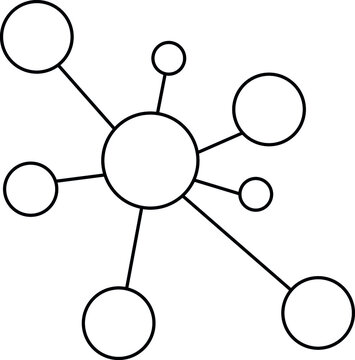Community and Community Roles#
Everyone has a skill that is useful for someone, and therefore anyone can contribute to The Turing Way.
The Turing Way book has been co-authored by more than 450 diverse contributors and utilised by different groups of individuals who are researchers, educators, learners, policymakers, government employees and industry professionals.
Our community members and general audience includes, but are not limited to, researchers, students, data scientists, software engineers, project leaders, team coordinators, community managers, data stewards, librarians, data science educators, open science practitioners and more.
As of June 2024, The Turing Way community has been joined by more than 1000 members, who engage via GitHub, Slack Workspace and a range of community events. The book itself has 6000+ monthly users worldwide.
All contributions, discussions, and contributor details are handled through the central GitHub repository (the-turing-way/the-turing-way). Contributors’ details are available in the Contributors Records, and the project reports offer detailed updates from different areas of work within The Turing Way.
Project Delivery Team#
The project is supported by The Alan Turing Institute under the Tools, Practices, and Systems (TPS) Programme, with several positions funded to work on The Turing Way.
The project is managed and its activities/goals are delivered by the project delivery team, which currently includes project leads Kirstie Whitaker (TPS Programme Director) and Malvika Sharan (TPS Senior Researcher), research community manager: Anne Lee Steele and a research project manager: Arielle Bennett (TPS Programme Manager).
Beyond the Book#
The book may be the visible product of the work we do in the project, but, the process of collaborative development with the help of its community is what we value the most. This project could not exist without the collaborative nature and willingness of our community members to support each other. We are committed to providing an open, accessible and inclusive space for all our community members where they are appreciated, upskilled and given opportunities to contribute to the project in a way that is most meaningful for them.
Roles beyond the book can involve, but are not limited to the following:
Reviewers and maintainers of the book and underlying infrastructure
Advocates and champions of The Turing Way resources, who help others navigate the book, repositories and communications channel
Co-creators of content and infrastructure at any level from fixing bugs to adding new content beyond the book
Mentors and consultants in specific areas of work, including responding to questions from other community members on GitHub and Slack
Sustained contributors who provide expert consultation to improve the resources over a prolonged duration
Members providing support through in-kind collaboration/partnership
Connector, convener and collaborators from the broader data science network
The Turing Way curious (‘lurkers’) users of resources who read, adopt and share best practices from The Turing Way in their work and participate in public events/communications channel
Members sharing personal experience (which we value a lot!) to enrich The Turing Way resources with real-world contexts
Speakers and presenters of any aspect of The Turing Way at different events and contexts.
New contributors to The Turing Way can begin their journey at any time, and through various pathways including voluntary participation, invited contribution, training/workshop-based introduction, organisational collaboration, and personal collaboration with other community members or others.
Our general recommendations for new starters are the following:
Start small! Find easy wins!
Start with what you don’t know and want to learn.
Start with what you know and want to share.
Capture the process of how good projects are carried out in data science.
Flag what is unclear about The Turing Way or help build documents that you would like to have.
Share your personal stories, case studies and perspective: The Turing Way is a ‘lightly’ opinionated guide after all!
To explore different pathways for community members to get involved, please visit the **Start Page: https://the-turing-way.start.page/.
Establish Partnership#
The Turing Way project also involves collaborators from projects within the Turing, partnering organisations, open-source communities, and beyond, either formally through funded grant proposals or informally through collaborative activities such as co-creation of resources (such as chapters, articles or community documentation) and events (such as Fireside Chat, Book Dash and external conference session).
Represent The Turing Way#
We have a chapter on ch-presenting to help you present and share about The Turing Way in your network.
The Turing Way team will be happy to discuss your ideas with you, provide feedback and any other assistance you need for delivering a talk.
For further details on these community roles, please read the Community Handbook describing different Contributions and their acknowledgements.
